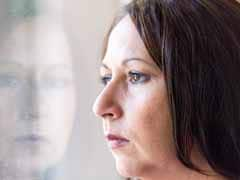Read on as we share the benefits and downsides of HRT.

Oestrogen therapy may improve cardiovascular health by reducing the risk of heart disease
Hormone Replacement Therapy (HRT) is a medical treatment that involves replenishing the body with hormones that it can no longer produce in sufficient quantities. It is commonly used to relieve symptoms associated with hormonal imbalances or deficiencies.
People take HRT for various reasons. In women, it is primarily used to alleviate symptoms linked to menopause, such as hot flashes, mood swings, vaginal dryness, and sleep disturbances. By replacing the hormones (oestrogen and progesterone) that naturally decline during menopause, HRT helps relieve these symptoms and improve overall well-being. Keep reading as we share the benefits and downsides of HRT.
Benefits of Hormone Replacement Therapy:
1. Symptom relief
Hormone replacement therapy can effectively alleviate menopausal symptoms such as hot flashes, night sweats, mood swings, and vaginal dryness. It can also help address symptoms related to low testosterone in men, such as fatigue, low libido, and mood changes.
2. Reduced risk of osteoporosis
Hormone replacement therapy can help prevent bone loss and reduce the risk of fractures in postmenopausal women. Oestrogen replacement increases bone density and reduces the risk of osteoporosis-related fractures.
3. Cardiovascular health
Oestrogen therapy may improve cardiovascular health by reducing the risk of heart disease and stroke in postmenopausal women. The therapy helps maintain healthy blood vessels, reduces LDL cholesterol levels, and improves the balance between HDL and LDL cholesterol.
4. Improved cognitive function
Hormone replacement therapy may contribute to enhanced cognitive function and can help reduce the risk of developing Alzheimer's disease and other forms of dementia in women.
5. Improved quality of life
Many individuals undergoing hormone replacement therapy report an improved sense of well-being, increased energy levels, and an overall improvement in their quality of life.
Downsides of Hormone Replacement Therapy:
1. Increased risk of certain cancers
Long-term oestrogen and progestin hormone therapy may slightly increase the risk of breast, ovarian, and endometrial cancer. However, the risk seems to vary depending on the duration and timing of the therapy.
2. Increased risk of blood clots
Hormone replacement therapy, especially when taken orally, may increase the risk of blood clots in the legs (deep vein thrombosis) or lungs (pulmonary embolism). The risk is higher for women with existing cardiovascular risk factors.
3. Increased risk of stroke
Oestrogen therapy may increase the risk of stroke, particularly in older women or those with existing cardiovascular disease.
4. Side effects
Common side effects of hormone replacement therapy include breast tenderness, bloating, mood swings, and headaches. These side effects are usually temporary and resolve over time.
5. Individual variability
Hormone replacement therapy affects individuals differently, and determining the appropriate dosage and duration can be challenging. It may require adjustments and monitoring to find the most suitable treatment regimen for each person.
These benefits and downsides of hormone replacement therapy underline the importance of individualised treatment decisions, considering the risks and benefits for each person's unique health situation. It is important to note that HRT should always be prescribed and monitored by a healthcare professional, as the appropriateness of this treatment may vary depending on individual circumstances and medical history.
Disclaimer: This content including advice provides generic information only. It is in no way a substitute for a qualified medical opinion. Always consult a specialist or your own doctor for more information. NDTV does not claim responsibility for this information.
DoctorNDTV is the one stop site for all your health needs providing the most credible health information, health news and tips with expert advice on healthy living, diet plans, informative videos etc. You can get the most relevant and accurate info you need about health problems like diabetes, cancer, pregnancy, HIV and AIDS, weight loss and many other lifestyle diseases. We have a panel of over 350 experts who help us develop content by giving their valuable inputs and bringing to us the latest in the world of healthcare.














